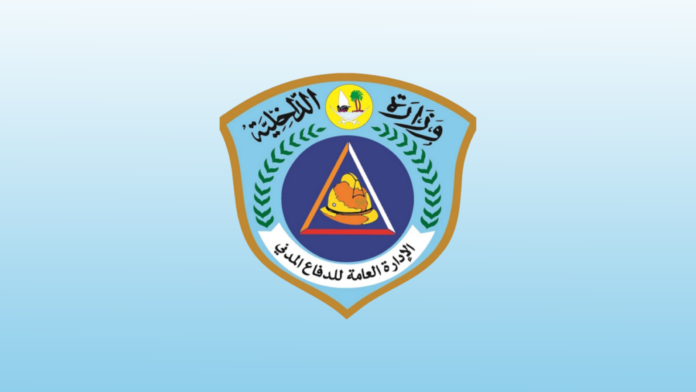The official gazette issued by the Ministry of Justice in its ninth issue published the decision of the Minister of Interior No. (24) for 2024 regarding the conditions for licensing the installation and maintenance of civil defence equipment, devices, and materials.
The decision, which includes five articles, stipulates that only a technician licensed by the General Directorate of Civil Defense can install and maintain civil defence equipment, devices, and materials. To obtain this license, the technician must have a valid residence permit and be employed under a contract with a company registered in the commercial register and approved by the General Directorate of Civil Defense.
The decision also requires that if the technician is an engineer, they must be registered with the Committee for the Acceptance of Engineers and Consulting Offices in the relevant civil defence specializations, with at least five years of experience if an engineer, and two years if a technician, according to the specializations determined by the General Directorate of Civil Defense.
Additionally, the technician must have received specialized training in installing and maintaining civil defence equipment, devices, and materials and pass a performance evaluation test conducted by the General Directorate of Civil Defense.
The decision also states that the technician’s license is renewable and valid for three years. If the technician is an engineer, the license duration is tied to the validity of their registration in the engineers’ register, not exceeding three years and renewable. The General Directorate of Civil Defense has the right to re-test the technician when renewing the license. The decision also includes that the licensed technician must not sign reports related to civil defence work outside their scope of expertise.
Regarding critical infrastructure, the official gazette published the decision of the Minister of Interior No. (25) for the year 2024 concerning these facilities. The decision states that the facilities listed in the attached schedule are considered critical infrastructure according to Law No. (25) of 2015.
It also states that the General Directorate of Civil Defense grants certificates of compliance and suitability for the fire prevention system for critical infrastructure that meets civil defence requirements based on a request submitted by the facility owners or their legal representatives and after paying the prescribed fee. The certificate is valid for five years from the date of issuance and must be renewed periodically within thirty days before its expiration date.
The decision stipulates that the entities responsible for critical infrastructure must appoint a safety officer from among the volunteer committee members for civil defence work to act as a liaison between them and the General Directorate of Civil Defense. This safety officer is responsible for implementing civil defence plans and measures in the facility, monitoring the implementation and maintenance of security and safety requirements, coordinating with relevant entities to prepare and execute intervention and evacuation plans in case of disasters, and forming specialized teams and training them in all civil defence tasks.
According to the decision, the safety officer in critical infrastructure must be a Qatari national, the child of a Qatari or a Qatari mother, or born in Qatar, holding a certified diploma in one of the civil defence specializations or a high school diploma with courses in civil defence, with at least two years of experience in facility safety, being in good health and of good conduct, and passing the medical examination and personal interview by the General Directorate of Civil Defense. The Minister of Interior or their delegate can exempt some of these requirements based on public interest.
The schedule of critical infrastructure includes palaces and princely establishments, military facilities, ministry buildings and government agencies, public authorities and institutions, radio, television, telecommunications, and satellite broadcasting stations, airports, land and sea ports, energy and gas facilities, hydrocarbon and derivative facilities, banking facilities and stock exchange, industrial and tourism facilities, residential and administrative towers, power generation and water desalination plants, hospitals and health centres, sports and cultural facilities, educational and training facilities, medical and specialized laboratories, railway stations and lines, event halls, museums and historical facilities, sewage treatment plants, strategic warehouses, and land transport facilities.




